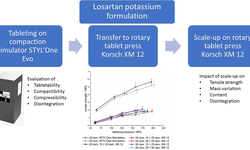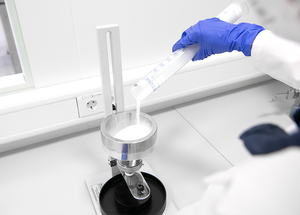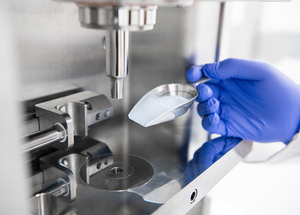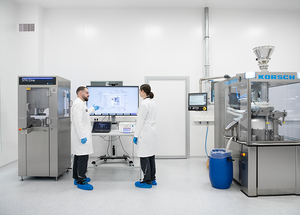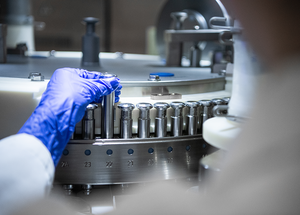Scientific papers
Minitablets are created through the utilization of multiple die openings and multi-tip punches to enhance productivity. Typically, the total compaction force required is determined by multiplying the desired force per tip by the number of punch tips. Yet, few researchers have investigated this relationship and its impact on the critical quality attributes (CQAs) of high drug load minitablets, including the number of punch tips and punch face geometry. This study reveals that minitablets produced with multi-tip tools exhibit greater weight variation compared to those made with single-tip tools. Additionally, their compaction process involves a longer dwell time, resulting in higher minitablet tensile strength and consequently longer disintegration times. Interestingly, achieving consistent CQAs for minitablets did not strictly correlate with the number of punch tips employed, while the influence of punch face geometry was found to be insignificant. Moreover, increasing the concentration of magnesium stearate (as a lubricant) from 0.75% to 1.25% w/w reduced weight variation, particularly in minitablets prepared with multi-tip tools, and extended disintegration time without significantly affecting tensile strength regardless of the tool type used. Adjusting the compaction speed proved effective in balancing differences in dwell time and tensile strength between minitablets produced by single-tip and multi-tip standard concave tools, with a greater reduction in compaction speed necessary for single-tip tools at higher compaction pressures.
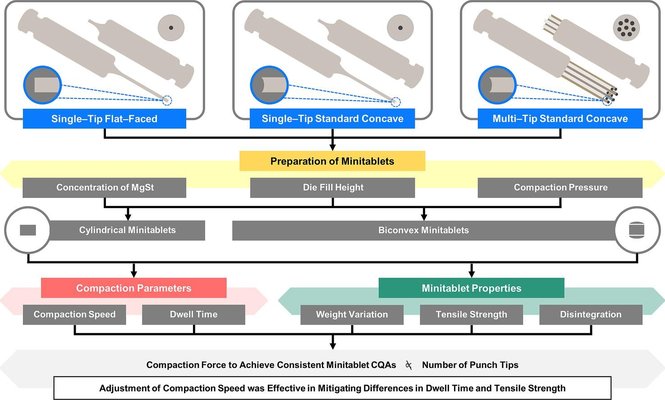
Comments
No comments posted yet.
Add a comment


